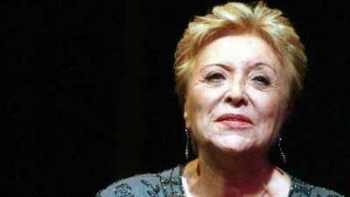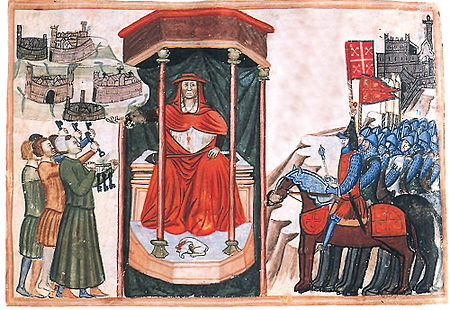August 23
Saints Days : Rosa de Lima, Felipe Benicio, Donato and Valeriano
Births
1905 - Cristino Mallo, sculptor (d. 1989)
1905 - Julio Martínez Santa-Olalla, archeologist (d. 1972)
1933 - Amparo Soler Leal, Actress
1940 - Carmen de la Maza, Actress
1952 - Santillana, footballer
1981 - Carlos Cuéllar, footballer born in Madrid

Amparo Soler Leal
Deaths

Gil Álvarez Carrillo de Albornoz https://en.wikipedia.org/
1367 - Gil Álvarez Carrillo de Albornoz, was a curial cardinal, archbishop of Toledo from 13 May 1338 to 17 December 1350. Grand Penitentiary from December 1352 to August 23, 1364. Cardinal priest with the title of San Clemente from December 17 1350 to December 1356. Cardinal bishop of Sabina from December 1356 to August 23, 1364. Cardinal legate and vicar general from 30 June 1353 to 1357, who led as condottiere Papal States mercenary armies in two campaigns to reconquer territory in Italy, and statesman. Albornoz was a descendant of the Kings of León and Aragón and founder of the Collegio di Spagna, an academic institution of Bologna (b. 1310)

Isabel de Aragón - https://es.wikipedia.org/
1498 - Isabel de Aragon and Castile, Portuguese queen between 1497 and 1498 eldest daughter of Isabella 1 of Castile and Ferdinand II of Aragón. Born during the reign of her uncle, Henry IV of Castile, the early years of her life were defined by the tension between him and her mother, as her uncle would not forgive her mother for marrying Ferdinand without his permission. Upon the death of Henry IV in 1474, Isabella's mother claimed the throne of Castile, and the young Isabella was swiftly sworn as the heir presumptive to the throne
The early years of the reign of Isabella I were spent embroiled in a war of succession, as Henry IV had not specifically named a successor. A struggle ensued between Isabella I and her niece Joanna, who was known as "la Beltraneja" due to the rumours that she was the illegitimate child of Henry IV's queen Joan of Portugal and his favourite, Beltrán de la Cueva, 1st Duke of Albuquerque. Afonso V of Portugal, who was Henry IV's brother-in-law and young Joanna's uncle, intervened on Joanna's behalf and Ferdinand and Isabella were forced into a war with Portugal.
During the war, young Isabella witnessed some of the chaos for herself. While her parents were fighting the Portuguese, the princess was left in Segovia while the city was placed under the control of Andrés de Cabrera and his wife Beatriz de Bobadilla. The city's residents, unhappy with this new administration, rose up and seized control of the city. The then-seven-year-old princess was trapped in a tower of the Alcázar for some time until her mother returned to Segovia and took control of the situation.
The war ended in 1479 with the Treaty of Alcáçovas. Among the terms were the provision that Princess Isabella would marry the grandson of Afonso V, Afonso, who was five years younger than the princess. The treaty also provided that Ferdinand and Isabella would pay a large dowry for their daughter and that the princess would reside in Portugal as a guarantee that her parents would abide by the treaty terms. In 1480, Prince Afonso went to live in the town of Moura with his maternal grandmother Beatrice, Duchess of Viseu, and was joined in the early months of the following year by his future wife, the ten-year-old Isabella. She spent three years in Portugal before returning home.
Isabella also spent a considerable part of her youth on campaign with her parents as they conquered the remaining Muslim states in southern Spain. For example, she accompanied her mother in accepting the surrender of the city of Baza. (b. 1470)
1591 - Luis de León, was a lyric poet, Augustinian friar, theologian and academic, active during the Spanish Golden Age (b. 1527)
1936 - José María Albiñana, doctor, writer and politician (b. 1883)
1936 - José Martínez de Velasco y Escolar, politician (b. 1875)
1966 - Guillermo Gorostiza, footballer (b. 1909)
2010 - Carlos Mendo, journalist (b. 1933)
2013 - Álvaro Bultó, television presenter and risky sport player (b. 1962)
2014 - Jaume Vallcorba Plana, philologist and publisher (b. 1949)
